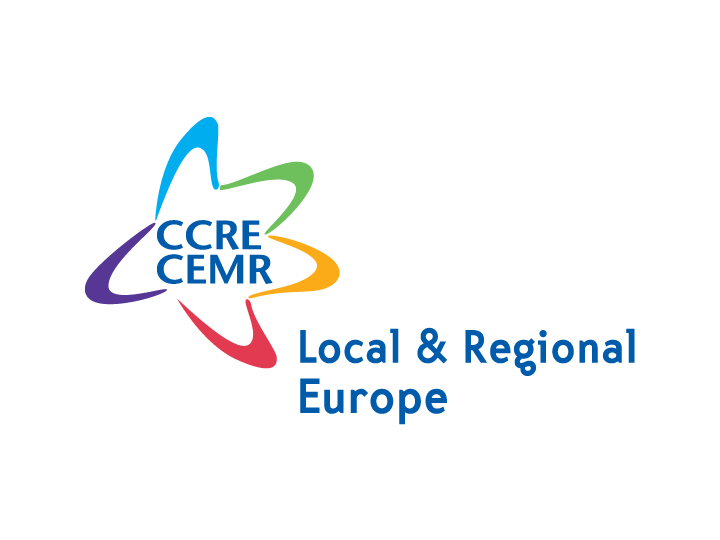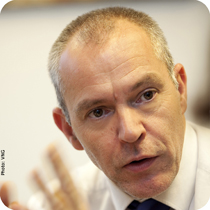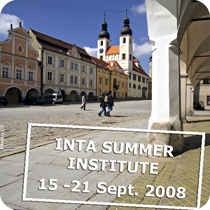CEMR General Assembly: Frédéric Vallier on what you can expect to see during Congress
What answers can municipalities, cities and regions expect to receive during the Congress?
Europe is changing, the crisis having given European leaders the opportunity to redefine the future of our continent, be it from a political, economic or financial point of view. These changes will have a great impact on our municipalities and regions, which is why CEMR believes it is necessary to involve all local, regional, national and European government actors in a partnership revolving around three main aspects: decentralisation, democracy and development.
Decentralisation because, in these times of crisis, the issue of allocating power to the different spheres of government is on the table in most European countries. Indeed, some national governments tend to recentralise policies, while others tend to make a number of budget cuts thus limiting the capacities of local and regional authorities. A number of countries have also introduced new fiscal policies, which undermine the local and regional autonomy of our territories. Municipalities, cities and regions must therefore find innovative and cost-effective solutions in order to generate better growth and better quality of life for our citizens. Thus, our Congress will aim at bringing local and regional leaders together to exchange and learn from one another in person!
Democracy because we firmly believe that there is no true democracy without local democracy. Indeed, municipalities and regions are the level of governance closest to the citizen and are thus best placed to encourage the active participation of citizens in local political life. For example, over 1 300 local and regional authorities have signed the European Charter on Equality of Women and Men in Local Life. In this context, we have planned a session at the Congress to discuss new prospects for the Charter as well as the implementation and monitoring of local gender equality action plans. Also on the agenda is the integration of migrants from third-countries. This issue is one of vital importance to local and regional elected representatives, who could benefit from exchanging with their peers in order to see what other municipalities, cities and regions are undertaking in this regard.
Development because in these times of major economic and social instability, local and regional leaders should count on their own capacity to mobilise citizens relevant actors on the ground to put into place initiatives, create jobs and unlock new prospects, notably for young people. This is all the more vital when it comes to ensuring a sustainable form of local development, with the mobilisation and direct involvement of local actors and resources in support of developing the long-term potential of our territories.
To whom is this Congress directed at? Is it a Congress for elected officials, experts or civil servants?
Our Congress is first and foremost a meeting place for European local and regional elected politicians who wish to exchange directly with their counterparts and learn from one another in person. While our primary focus is indeed local elected representatives, the Congress is also open to leaders from the rest of the world, European institution representatives and experts from local and regional governments and their associations.
What are your expectations concerning the Congress? What should happen there so that you could call it successful?
We want to give local and regional leaders the opportunity to actively participate in the different sessions so as to come up with solutions that can be directly implemented on the ground. This is why we propose more intimate and dynamic roundtables in addition to more traditional plenary sessions. We expect hundreds of participants from smaller municipalities to bigger cities, provinces, and regions, representatives from national governments and European institutions as well as experts in a number of fields. This diversity alone should make the debates worth the travel and should meet everyone’s networking needs and expectations!
Your General Assembly is organised in Cadiz; how does that influence the organisation of the Congress?
This year, the historical city of Cadiz is celebrating the two hundredth anniversary of the Pepa. Signed in Cadiz, it is the world’s third oldest democratic constitution and the first to establish the principles of freedom, civil rights and citizenship in Spain.
Furthermore, and in the context of the Congress, the City of Cadiz will propose a number of technical visits on the ground which will allow participants to discover innovative initiatives and activities. Those interested will get the opportunity to visit Europe’s biggest offshore oil platform assembly plant, a large scale solar power plant as well as a training and employment programme in the nautical sector directed at young people.
Given its specific geographic location, a session will also be dedicated to decentralised links between Europe and Latin America. This is all the more pertinent when considering that Cadiz has received the title of 2012 Ibero-American Capital of Culture, the first non-capital city to have received this title thus far.
A number of Congresses are organised all over Europe. What sets this one apart from all the others?
CEMR’s 55 member associations from 40 European countries, representing 100 000 local and regional authorities, is what makes this Congress unique. Nowhere else in Europe will you find such a networking opportunity or platform for exchange. Our broad membership also means that representatives from both the smallest and largest spheres of decentralised government will come together to discuss common issues and solutions, thus fully representing the diversity of local government that characterises Europe.
What is new in comparison to CEMR’s previous General Assembly held in Malmö in 2009?
This edition of the General Assembly is set to be more innovative and participative than previous ones. Our intimate leaders’ roundtables will allow for a small number of elected representatives to discuss specific issues and come up with solutions together, each participant bringing his experience and expertise to the table.
Moreover, CEMR has recently committed to a strategy of modernisation and, in this context we have decided to use new technologies during the Congress to render both form and substance innovative. Online tools, such an up-to-date news section and live Twitter newsfeed (use the Congress hash-tag: #CEMR2012) are both found on the Congress website (www.cemr2012.eu), and will provide updated information before, during and after the Congress.
A mobile website will also be made available to participants so that they may consult the website, programme and news directly via their mobile phones. We will thus invite attendees to bring and use their Smartphones, tablets and computers rather than paper documents in the hopes of reducing our use of paper during the Congress and thus ensuring the sustainability of our gathering.
rn

Climate, Sustainable Finance Officer





